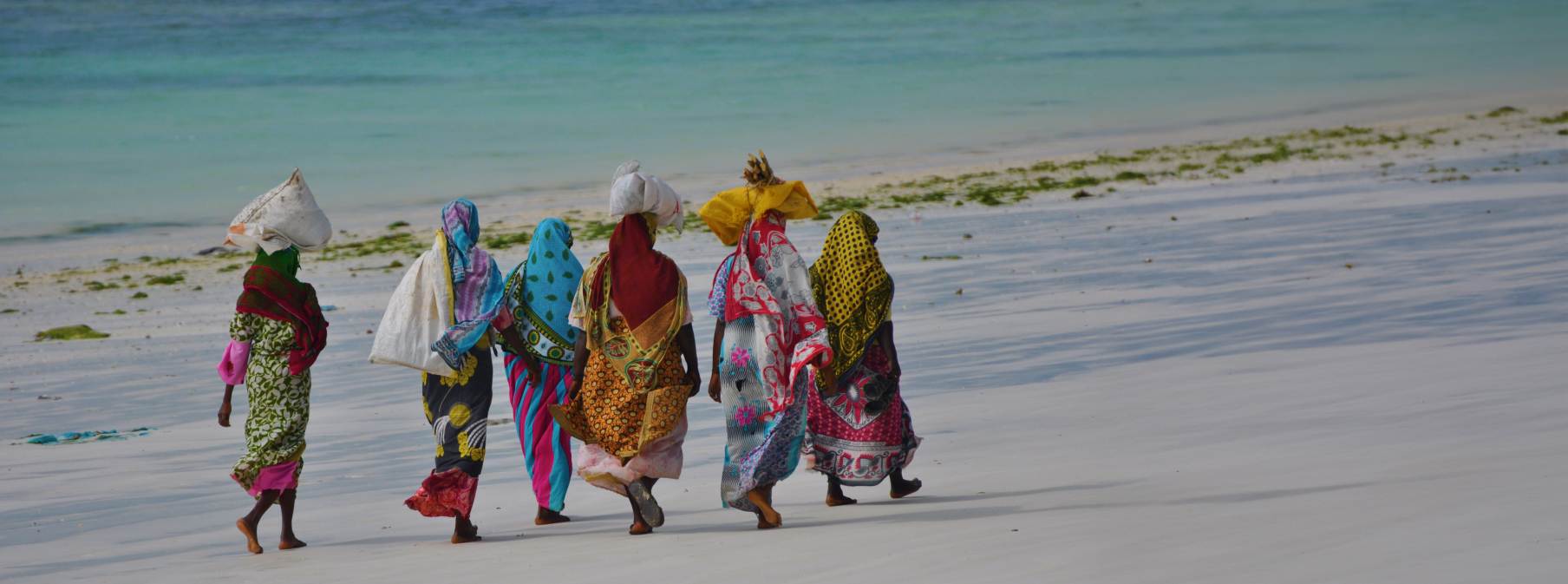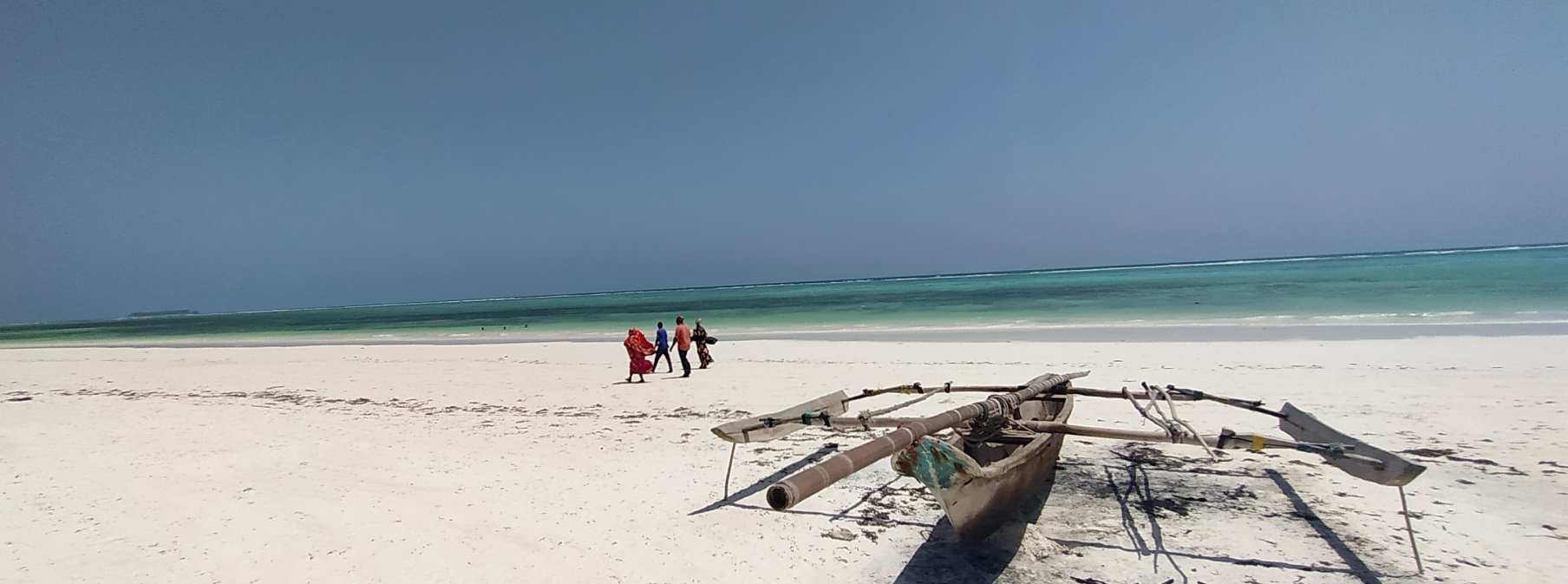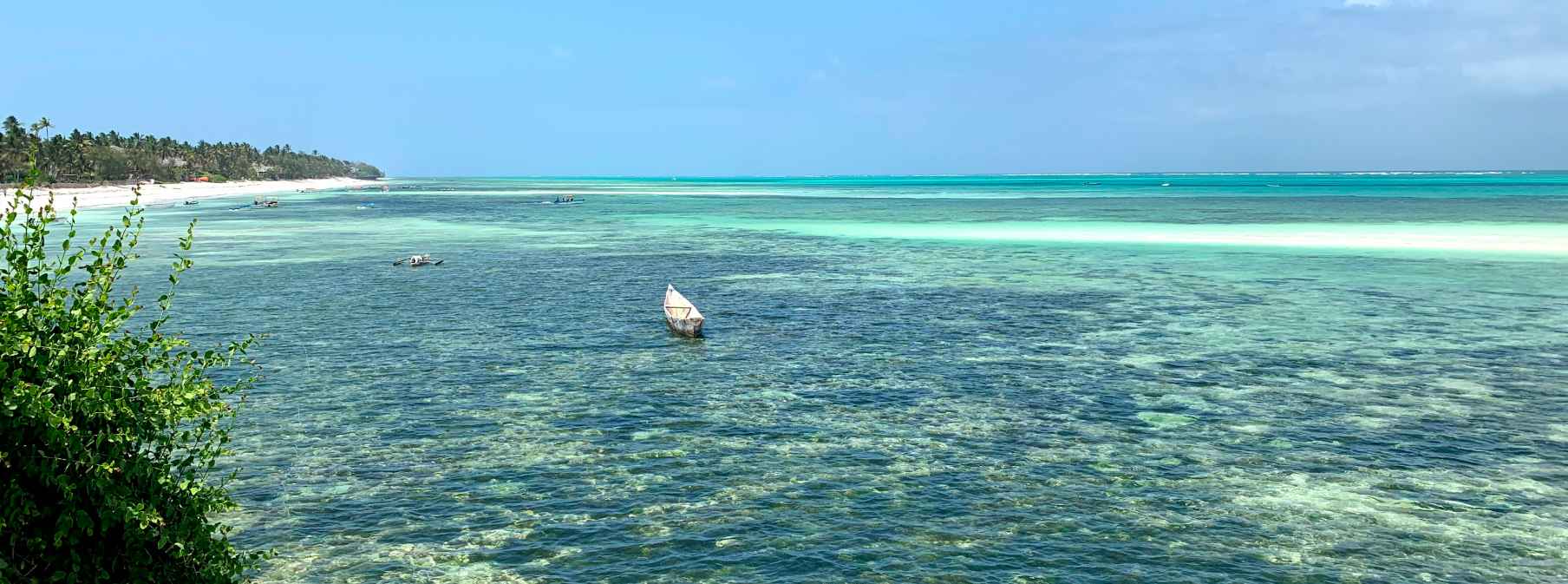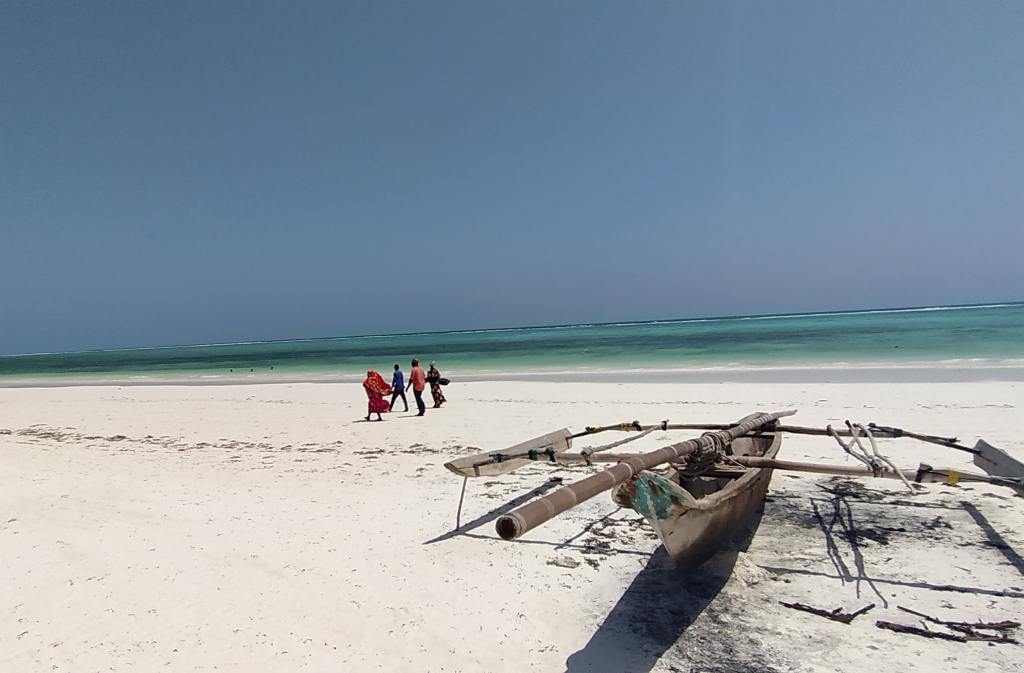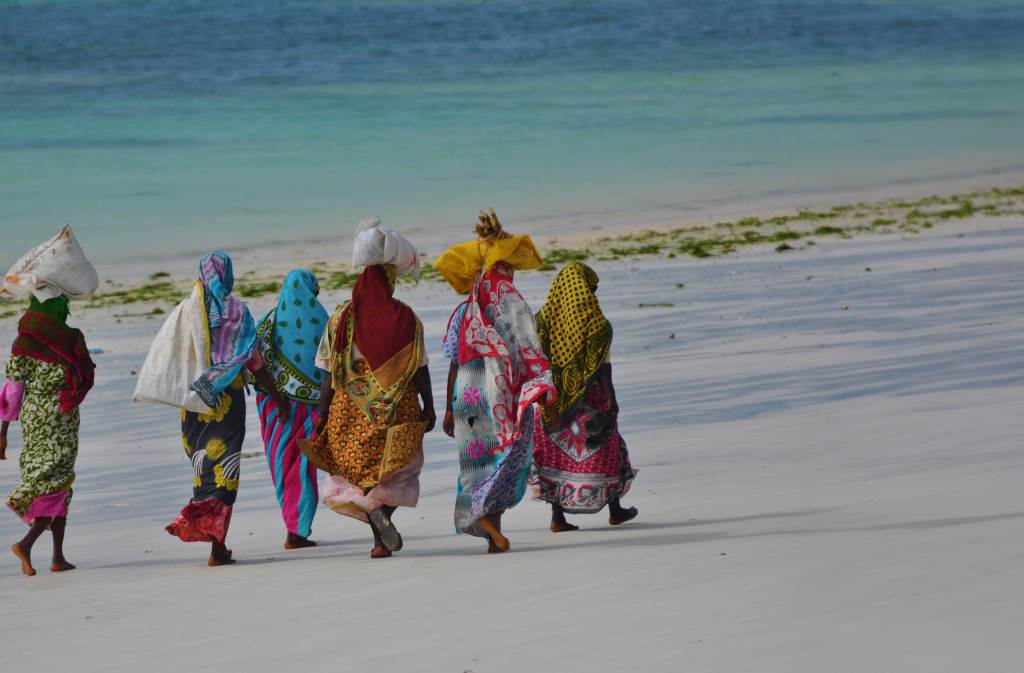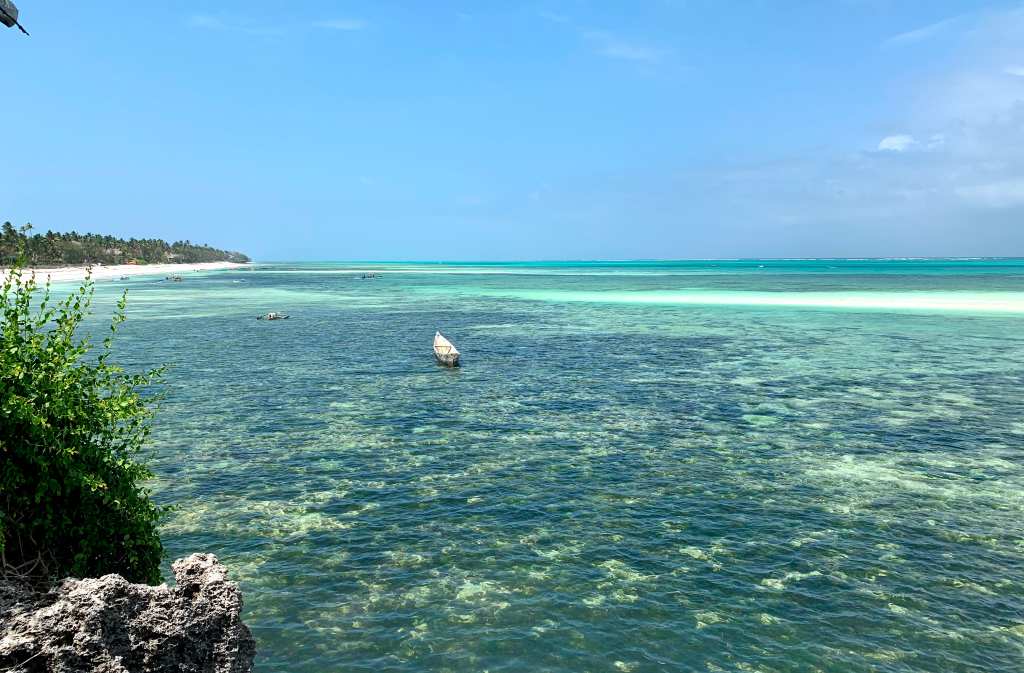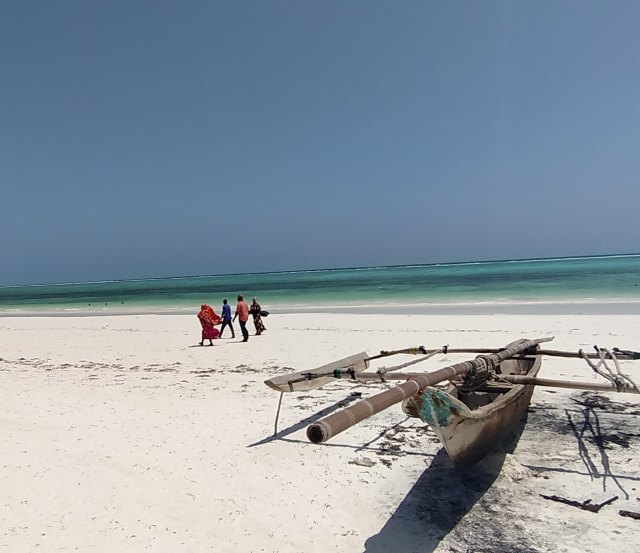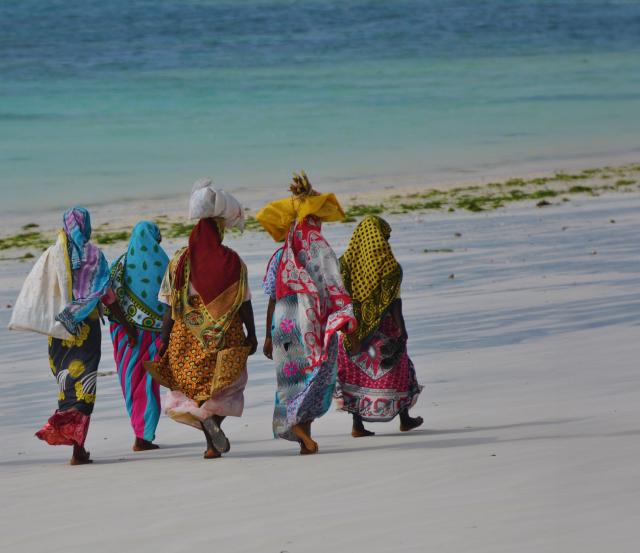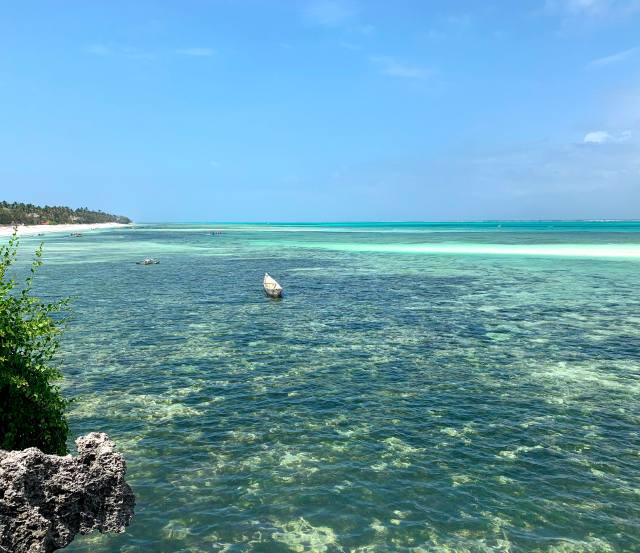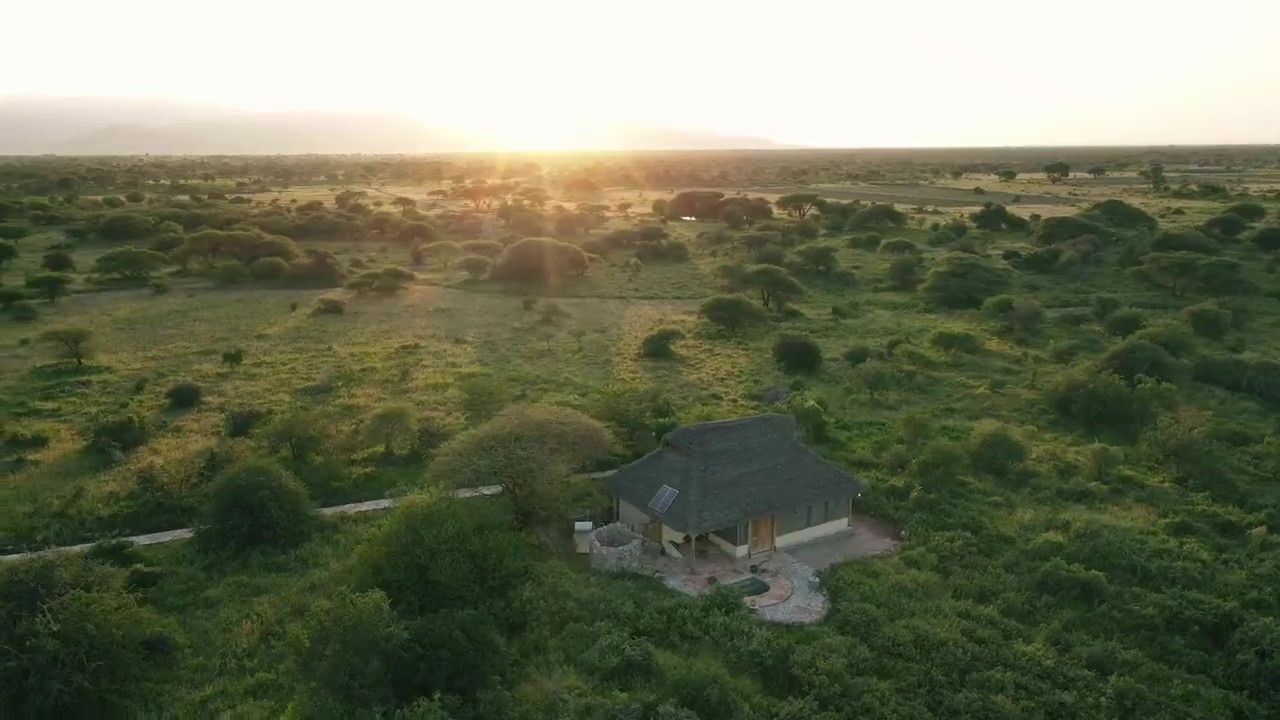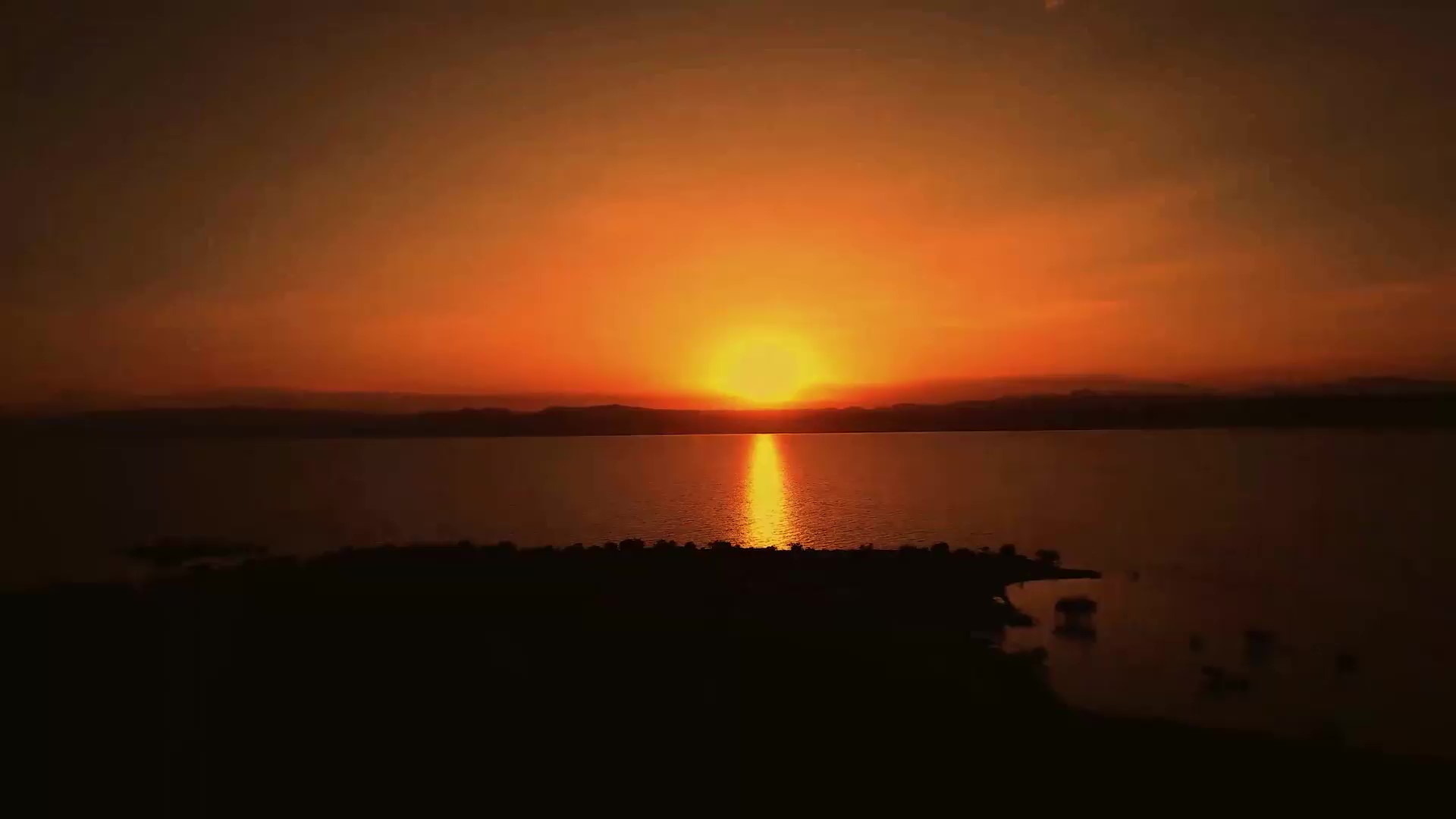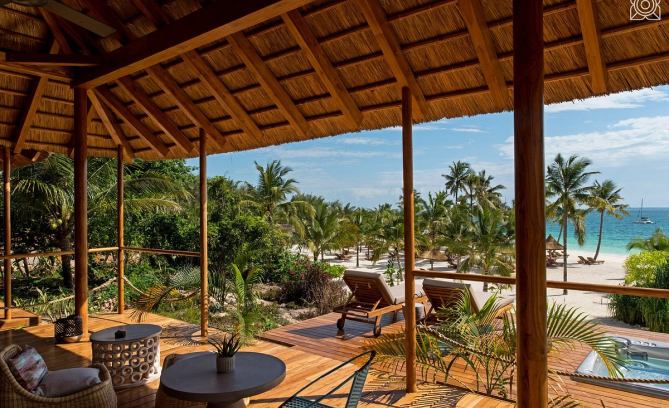Visit Zanzibar,
legendary history and island paradise
Zanzibar evokes the image of a legendary spice trade hub. Arab merchants, notably the Sultan of Oman, quickly recognized the potential of its fertile lands and strategic location. Ivory and African slaves also contributed to its wealth. Today, Zanzibar is primarily famous for its white sandy beaches, dolphins, and comfortable hotels. Tourism has evolved significantly in the past 15 years, but the locals still live at a pace and within a culture all their own.
The island of Unguja (Zanzibar) covers 1,658 square kilometers and is part of an archipelago in the Indian Ocean, with Pemba as the other main island. Its capital, Stone Town, is a UNESCO World Heritage site. Zanzibar is located 40 kilometers off the Tanzanian coast.
As early as the 4th century, a civilization was born from the fusion of the local population and Muslim traders, who exchanged dates and weapons for ivory and slaves. Later, the Portuguese came for trade. Zanzibar is also known for its cultivation of cloves, rice, and coconuts, and its nickname, "The Spice Island," comes from the diversity of its spices.
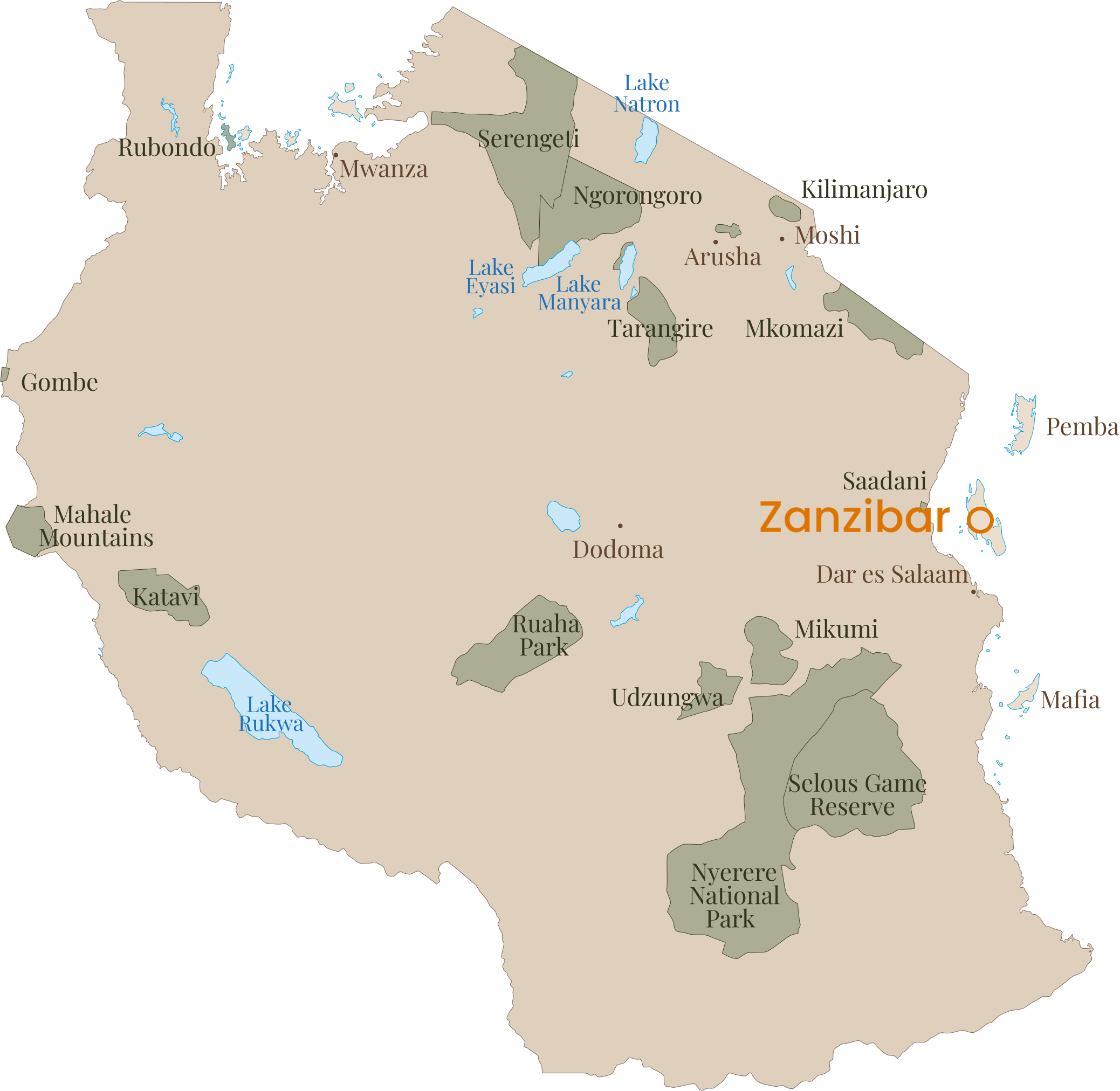
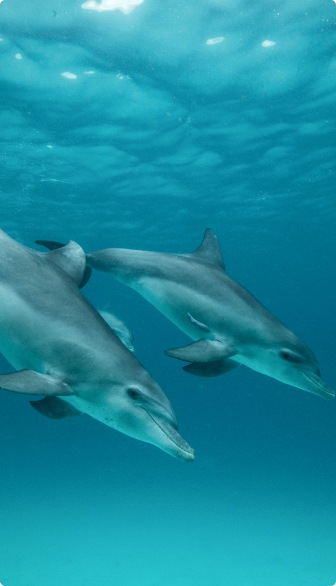

A journey to the heart
of the most beautiful landscapes
of Tanzania.

Habitat
& Animals
The island of Zanzibar, part of the Zanzibar Archipelago in the Indian Ocean, is characterized by modest wildlife, primarily composed of small animals, birds, and butterflies. Historically, Zanzibar's natural habitats have been largely replaced by spice and food crops. However, it is still possible to spot mongooses, red colobus monkeys, various butterflies, and, with a bit of luck, encounter dolphins. Zanzibar’s rich biodiversity is closely linked to its pristine beaches and diving sites.
Look out for:
· Mongooses
· Red Colobus monkeys
· Butterflies
· Dolphins
A journey to the heart of Tanzania's most beautiful landscapes.
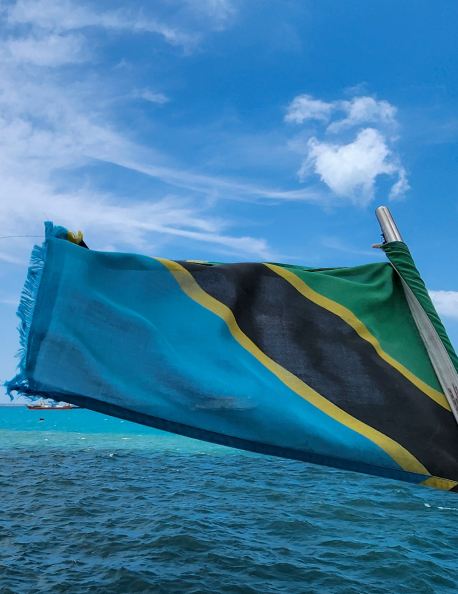
THE SULTANATE OF ZANZIBAR
In 1698, the Sultanate of Oman took control of Zanzibar, enriching itself primarily through the slave trade, which supplied the Persian Gulf with captives from East Africa. This trade continued until 1873, when it was abolished. In 1861, Zanzibar became an independent sultanate from Oman, but this independence did little to improve life on the island. Livingstone describes the misery of the time, with 20,000 slaves and epidemics decimating one-sixth of the population.
The opening of the Suez Canal in 1869 boosted trade with Europe, and the Sultan modernized irrigation and roads, revitalizing the economy. However, in 1886, the British, Germans, and French divided up the region: what would later become Tanzania was given to the Germans, and Mombasa became a British center, weakening Zanzibar. A treaty in 1889 abolished slavery, declaring that anyone born in Zanzibar was free.
Zanzibar gradually lost its sovereignty and became a British protectorate in 1890, until gaining independence in 1963. In 1964, Zanzibar united with Tanganyika to form the Republic of Tanzania.
 Stone Town City Tour
Stone Town City Tour
Explore the historic alleyways of Stone Town, a UNESCO World Heritage site, and discover its unique architecture and vibrant markets.
 Spice Tour
Spice Tour
Immerse yourself in Zanzibar's spice history by visiting local plantations and uncovering the secrets of growing cloves, cinnamon, and other spices.
 Jozani Forest Tour
Jozani Forest Tour
Walk through the Jozani Forest, home to the endemic red colobus monkeys, and enjoy its exceptional biodiversity.
 Lunch at The Rock
Lunch at The Rock
Dine at the world-renowned restaurant perched on a rock in the middle of the ocean.
 Picnic on a Sandbank
Picnic on a Sandbank
Enjoy a picnic on a sandbank in the open sea, accessible only at low tide, for a unique and intimate experience.
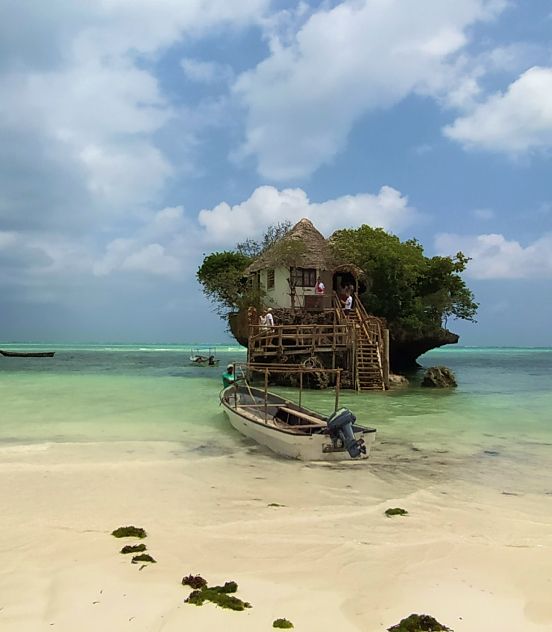
Your highlights
Shopping in Stone Town
Observe seaweed harvest
Learn to kite surf at Paje
Jozani forest
Meet the dolphins
Where to sleep
to make the most of Zanzibar
These accommodations
have been selected with care
by our team.
white sand villas
Baraza Resort & Spa
Zuri Zanzibar
Zanzibar Pearl
Mwezi Hotel
Sharazad Hotel
Zoi Boutique Hotel
Zanzistar
Fun Beach

Traveller's tip
"A safari can be quite tiring. I really enjoy it when we head to the beach in Zanzibar afterward, especially for swimming.
Be careful, though, the tides can be strong on the island and the East Coast. Don’t forget to book a hotel with a pool!"
Leo, Family Travel Tester
Similar safaris
Explore our travel itineraries and get in touch to plan your tailor-made adventure.
